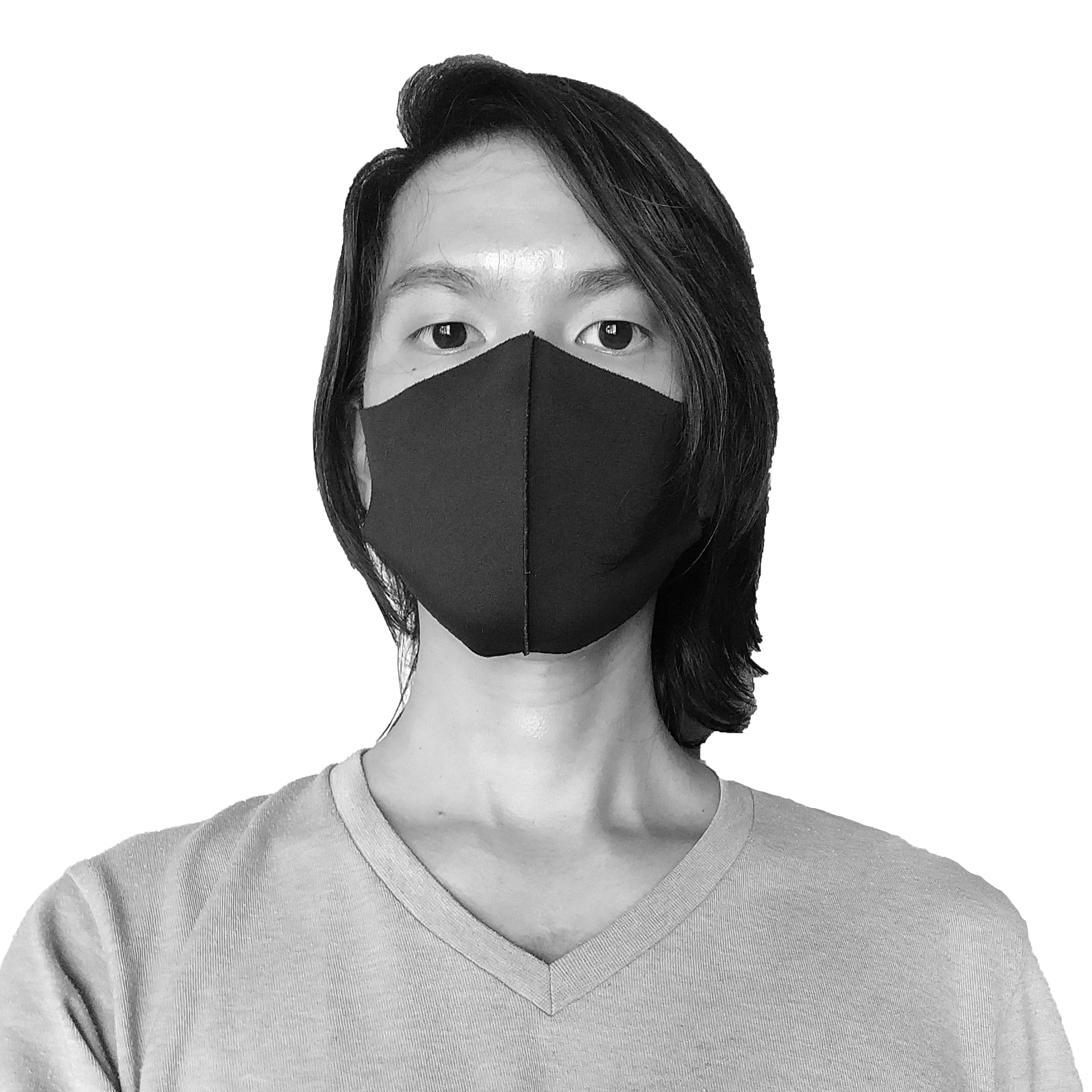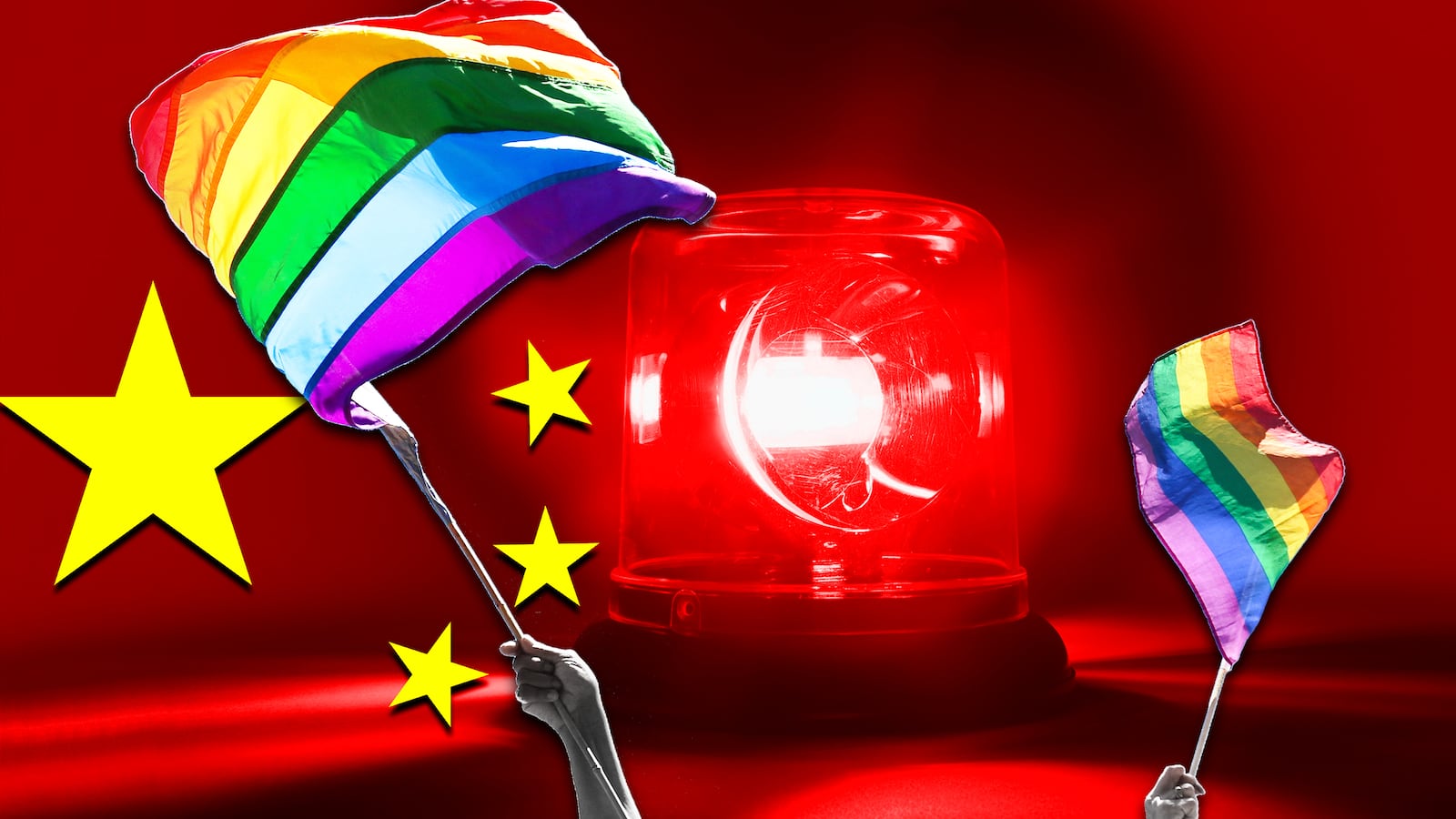HONG KONG—The rainbow flag has become a dangerous symbol in China, and flying the flag in public could lead to physical harm.
This was most brutally displayed in an incident in Beijing in May, when two women were planning to enjoy their weekend in the Chinese capital’s 798 Art Zone, a complex of decommissioned military factory buildings and warehouses that have been converted into art galleries, restaurants, and boutique shop spaces.
An LGBT activist with the handle Piaoquanjun on Weibo—the Chinese equivalent of Twitter—had posted an invitation online for supporters to visit the area and show their support for the International Day Against Homophobia, Transphobia, and Biphobia.
Piaoquanjun hugged everyone who showed up, and he had 5,000 rainbow badges to hand out. But the art district’s security guards quickly barred him from those outreach activities. Nonetheless, the two women had located Piaoquanjun, hugged him, and were given rainbows to wear. They pinned the badges on their chests.
Those bearing Piaoquanjun’s badges were blocked from entering the art zone. As the two women approached one entrance, security guards stopped them. An argument ensued. One woman was punched in the face and fell to the ground. The other was surrounded by five uniformed men, grabbed, and kicked repeatedly.
After seeking medical treatment, one of the women told Piaoquanjun that she required stitches in her mouth.
A staff member for the art district’s property management team told a Chinese state-run media outlet that they have “a right to stop illegal activity,” adding that “wearing a rainbow badge is illegal to me, and they, the homosexuals, have distorted sexual orientation, it is terrifying.”
So terrifying, apparently, that the only response for the guards was to be beat up two innocent women.
Four months later, in Shanghai, a similar incident occurred. British pop singer Dua Lipa held a concert in the city, during which some of her fans danced to her music. A few were apparently waving the rainbow flag.
Security guards roughed up some of the concert-goers and dragged them out of the venue. Again, beatings happened outside the arena. The singer was in tears on stage.
Staff at the concert venue—and their supporters—offered an excuse: it is “against the rules” for event attendees to stand during performances. But for other concerts held at the same location, specifically those with Chinese or Taiwanese pop and rock stars performing, dancing to the music has never been a problem.
After her show, Dua Lipa wrote on Twitter that she was “proud” of her fans, and that she would return to the city when “the time is right and hopefully see a room full of rainbows.”
By the time Sam Smith made a stop in Beijing as part of his concert tour in October, the guards at the Chinese capital’s Cadillac Arena had a lighter touch. They merely confiscated rainbow flags that fans hoisted during the show.
There is no reason to think that any of these incidents happened because of directives from the state.
Instead, the beatings and other negative reactions to the rainbow flags are the result of bigotry being inscribed in corporate policy, reflecting the extremely conservative, ill-informed social attitudes about sexuality that permeate Chinese society.
A representative of the Beijing LGBT Center told The Daily Beast that the rainbow flag binds members of China’s LGBT community and gives them a strong sense of shared identity in the face of strict censorship.
“On social media, ‘gay’ and ‘equal rights’ are still sensitive words, which are likely to be blocked or even deleted by the system,” the representative said. “Relatively, the rainbow flag is not so politically sensitive, which is beneficial for us to carry out relevant advocacy work.”
The crackdown on the rainbow flag comes after the authorities stepped in to cancel LGBT rights events in Guangzhou and Shanghai in May, labeling them as “illegal gatherings.” To discourage demonstrations, public security officials in Shanghai recorded the personal details of the participants.
Only three years ago, attitudes seemed vastly different. During the Lunar New Year holiday, a short film that unpacked the rejection and eventual acceptance of a family’s gay adult son went viral in China. At the end of the clip, parents of Chinese LGBT people shared their own experiences and well wishes.
Later in the same year, Taiwanese pop singer A-Mei rolled out a massive rainbow flag at her concert in Xiamen. The display was sponsored by Blued, a gay dating app developed in China by a former police officer. Under the guise of “pink commerce,” the expression of non-heterosexual orientation was condoned.
The struggle for LGBT visibility isn’t simply a cultural matter; there is a significant legal battle about to unfold as well.
A kindergarten teacher in Qingdao was laid off from his school after posting a comment on social media about attending an LGBT event. He didn’t receive sufficient severance or compensation for his 10-percent stake in the facility, and decided to pursue legal action.
State-run media has indicated that this is the first labor dispute filed by an openly gay Chinese citizen, stemming from a matter related to LGBT rights. The first hearing will take place on November 13.
In Jin Xing, transgender people in China may have one celebrity to look up to, but the country’s laws do little to acknowledge the existence of this minority population, much less protect their right to exist. Gender reassignment laws are ambiguous, and non-binary options are nonexistent on legal documents.
Homosexuality isn’t illegal in China, but changes made to the country’s internet regulations last year banned “displays of homosexuality” in audio-visual content, lumping gay culture together with “incest” and “sexual perversions.”
This led to the erasure of online posts made by members of the LGBT community and their allies. Thousands of photographs of same-sex couples kissing were wiped, as were love notes traded between people.
The message to the LGBT community—from Chinese corporations as well as the government—is that you can be gay, or bi, or trans, but not too publicly.






